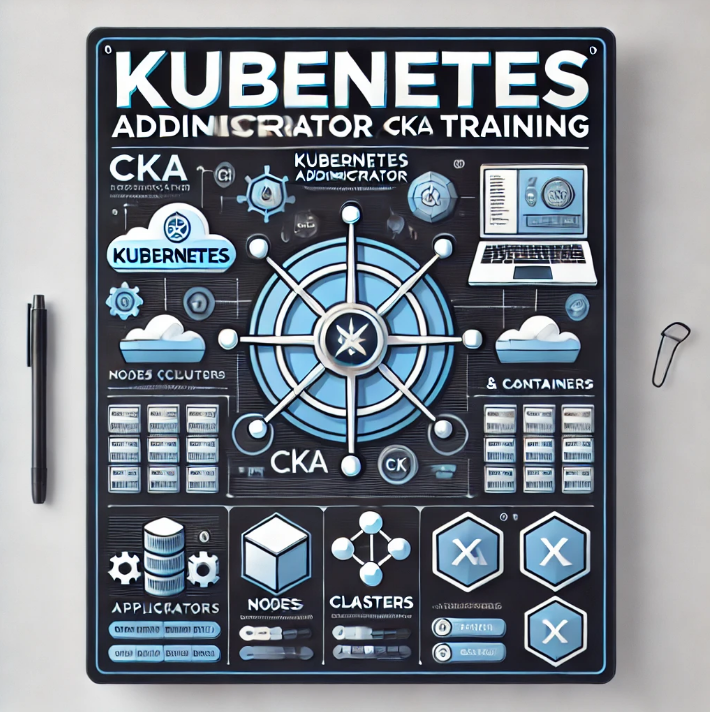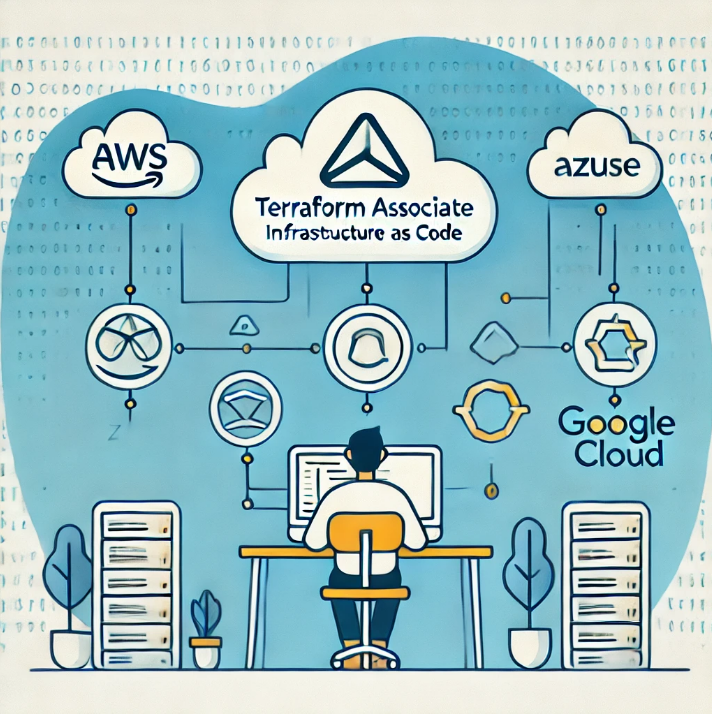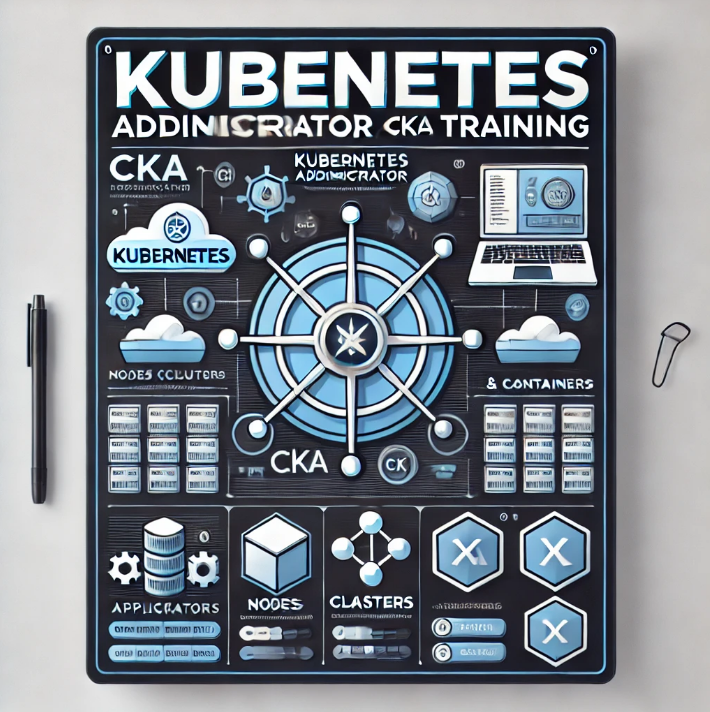Ethical Hacking Course
Thu, 10 Oct 2024

Follow the stories of academics and their research expeditions

Kubernetes Administrator (CKA) Training: Your Path to Mastering Kubernetes.
In the world of modern IT infrastructure, Kubernetes has become a leading tool for managing containerized applications. As organizations move to cloud-native environments, skilled Kubernetes administrators are in high demand. The Kubernetes Administrator (CKA) Training is designed to help IT professionals gain the expertise needed to deploy, manage, and troubleshoot Kubernetes clusters effectively. This course also prepares participants for the Certified Kubernetes Administrator (CKA) exam, a widely recognized certification in the industry.
In this article, we’ll explore the CKA training, what you’ll learn, and why it’s a valuable addition to your professional skill set.
The Kubernetes Administrator (CKA) Training is a comprehensive program that covers the core concepts and operational skills required to manage Kubernetes clusters. Kubernetes is an open-source platform that automates the deployment, scaling, and management of containerized applications. With the rise of cloud-native applications, mastering Kubernetes has become essential for system administrators, DevOps engineers, and cloud professionals.
This training focuses on practical, hands-on skills, ensuring that participants can effectively manage Kubernetes environments in real-world scenarios.
The course is structured into multiple modules, each designed to provide a deep understanding of Kubernetes architecture, installation, configuration, and troubleshooting.
1. Introduction to Kubernetes
This module offers a foundation in Kubernetes, helping participants understand the basic concepts. You will learn:
- What Kubernetes is and how it works
- The core components of a Kubernetes cluster
- The benefits of using Kubernetes for container orchestration
This introductory module helps participants build a strong base before diving into more advanced topics.
2. Installation and Configuration
Setting up Kubernetes clusters is a critical skill for administrators. In this module, you’ll learn:
- How to install Kubernetes on various platforms
- The configuration of Kubernetes master and worker nodes
- Using tools like kubeadm to create clusters
By the end of this module, you’ll be able to set up and configure Kubernetes clusters for production environments.
3. Kubernetes API Objects
Kubernetes uses API objects to represent the state of the cluster. In this module, participants will explore:
- Core objects like Pods, Nodes, Namespaces, and ConfigMaps
- How to interact with these objects using kubectl
- Managing and deploying applications using API objects
Understanding API objects is crucial for managing Kubernetes clusters efficiently.
This module focuses on managing workloads in a Kubernetes environment. Participants will learn:
- Deploying and scaling applications using Deployments and ReplicaSets
- Managing jobs and cron jobs for batch processing
- Ensuring high availability with Services and Load Balancers
Managing workloads efficiently ensures that your applications remain scalable and resilient.
5. Storage in Kubernetes
Kubernetes offers various storage options to support persistent data in containerized applications. In this module, you’ll learn:
- Configuring persistent storage using PersistentVolumes (PV) and PersistentVolumeClaims (PVC)
- Working with different storage types, including local storage, NFS, and cloud-based solutions
- Best practices for managing stateful applications in Kubernetes
Proper storage configuration is essential for running reliable, stateful applications in Kubernetes.
6. Kubernetes Networking
Networking plays a crucial role in how applications communicate within a Kubernetes cluster. This module covers:
- Configuring Cluster Networking and Network Policies
- Managing communication between services using Ingress Controllers
- Implementing DNS and service discovery in Kubernetes
Mastering networking in Kubernetes ensures smooth communication between services and applications.
7. Security in Kubernetes
Security is a top concern for Kubernetes administrators. This module focuses on securing Kubernetes clusters by covering:
- Role-Based Access Control (RBAC) for managing permissions
- Implementing network policies to secure communication
- Best practices for securing sensitive data using Secrets
A secure Kubernetes environment protects your applications from vulnerabilities and unauthorised access.
8. Monitoring and Logging
Keeping track of cluster performance and troubleshooting issues is key to maintaining a healthy Kubernetes environment. In this module, you’ll learn:
- Setting up monitoring using tools like Prometheus and Grafana
- Logging cluster activities with Fluentd and Elasticsearch
- Creating alerts and dashboards for proactive monitoring
Monitoring and logging help ensure that your applications run smoothly and issues are resolved quickly.
To make the most of the CKA training, participants should have:
1. A basic understanding of Linux command line operations.
2. Familiarity with containerization concepts such as Docker.
3. Some experience with cloud infrastructure (though not mandatory).
These prerequisites help learners grasp the more complex aspects of Kubernetes administration.
The Kubernetes Administrator (CKA) Training is suitable for a range of professionals, including:
1. System administrators responsible for managing IT infrastructure.
2. DevOps engineers working with containerized applications.
3. Cloud administrators managing cloud-native environments.
4. IT professionals seeking to improve their Kubernetes management skills.
5. Anyone preparing for the Certified Kubernetes Administrator (CKA) exam.
This course is ideal for individuals looking to build or advance their careers in container orchestration and Kubernetes administration.
By completing the CKA Training, participants will gain:
1. A comprehensive understanding of Kubernetes architecture and its components.
2. The ability to install and configure Kubernetes clusters on various platforms.
3. Skills to manage workloads, services, and deployments in Kubernetes.
4. Knowledge of how to implement storage solutions and manage persistent data.
5. Expertise in securing Kubernetes environments using RBAC and network policies.
6. Techniques for monitoring and logging Kubernetes clusters for performance.
7. Troubleshooting skills for resolving issues in Kubernetes clusters.
These skills will not only prepare participants for the CKA certification exam but also make them valuable assets to any organisation using Kubernetes.
The Certified Kubernetes Administrator (CKA) exam is a performance-based assessment, requiring participants to complete hands-on tasks. Here are the exam details:
- Format: Performance-based (real-world tasks)
- Duration: 2 hours
- Passing Score: 66%
The CKA exam validates your practical skills, ensuring that you can effectively manage Kubernetes environments in a professional setting.
As Kubernetes continues to dominate the world of container orchestration, organisations need skilled professionals who can manage these environments. The Kubernetes Administrator (CKA) Training equips you with the knowledge and skills to:
- Manage large-scale, containerized applications
- Secure and troubleshoot Kubernetes clusters
- Advance your career with the globally recognized CKA certification
Completing the training and earning your CKA certification will set you apart as a Kubernetes expert, opening up new career opportunities in the fast-growing field of cloud-native infrastructure.
The Kubernetes Administrator (CKA) Training is an essential course for IT professionals looking to master Kubernetes and earn the Certified Kubernetes Administrator (CKA) certification. With a focus on hands-on learning, this training prepares you to handle real-world challenges in managing Kubernetes clusters. From installation and configuration to security and troubleshooting, the skills you gain will make you an indispensable resource in any cloud-native environment.
Whether you're an experienced system administrator or a DevOps engineer, this training offers a solid foundation to advance your career in Kubernetes administration. Start your journey today and take the first step towards becoming a certified Kubernetes expert.
Thu, 10 Oct 2024

Sun, 22 Sep 2024

Sat, 21 Sep 2024
